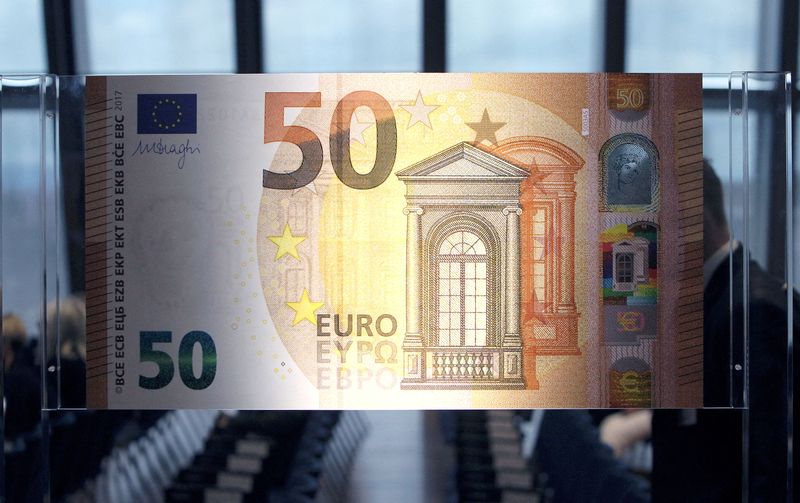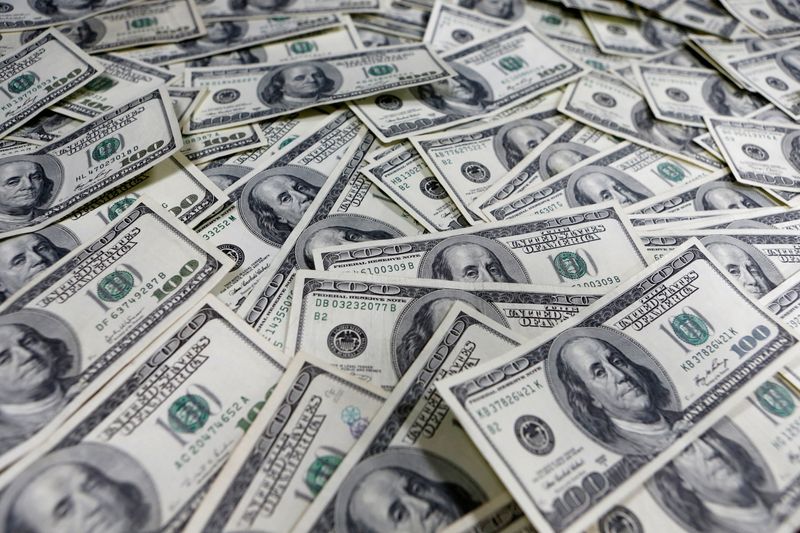By Amanda Cooper
LONDON (Reuters) – The euro stayed under pressure on Tuesday after data showed euro zone manufacturing activity deteriorated this month, although a rebound in the more inflation-sensitive services sector kept losses in check.
The euro has been struggling against the dollar in particular over the past couple of weeks, after strong U.S. labour data and signs of persistent inflation have raised the chances that U.S. interest rates will rise further than many previously anticipated.
S&P Global’s flash Composite Purchasing Managers’ Index (PMI) for the euro zone, seen as a good gauge of overall economic health, rose to its highest in nine months.
An index of service sector activity rose to its highest since June, while manufacturing declined at a sharper pace this month, according to Tuesday’s survey.
“Certainly the manufacturing numbers are disappointing, but what I would say is the services numbers are reasonably constructive,” CIBC Capital Markets global head of currency strategy Jeremy Stretch said.
Wage inflation is typically longer-lasting in the services sector and robust activity there would suggest the European Central Bank might be more likely to raise interest rates – thereby supporting the euro, he said.
The euro was last down 0.2% on the day against the dollar at $1.0667. It has lost nearly 2% in value against the U.S. currency in February so far. But this is something of an outlier. Against the Japanese yen, it has risen 1.4%.
The U.S. dollar index has gained nearly 2% so far in February, putting it on track for potentially its strongest monthly performance since September’s 3.2% rally. It is currently trading around 104, below Friday’s six-week high of 104.67.
“The data momentum has been positive of late but it’s going to be hard for the next few months to assess where we should be at this stage of the cycle,” Deutsche Bank strategist Jim Reid said.
“There has no doubt been big improvements from gas price falls and loosening of financial conditions but we’re yet to see anything close to the full lag of monetary policy filter through to the U.S. and Europe,” he said.
U.S. manufacturing data is due later on Tuesday, while Friday’s core personal consumption expenditures index – the Federal Reserve’s preferred gauge of price pressures – could shed more light on what might happen with interest rates this year.
Against the yen, the dollar was up 0.23% at 134.6, while against the Australian dollar it rose 0.4% to $0.68875, even after Reserve Bank of Australia minutes showed policymakers did not consider pausing hikes at February’s meeting.
Sterling reversed course and rose 0.3% against the dollar to $1.2071 and rallied 0.5% against the euro to 88.36 pence, after data showed UK business activity was far healthier than expected in early February.
(Additional reporting by Tom Westbrook in Singapore; Editing by Barbara Lewis and Susan Fenton)



